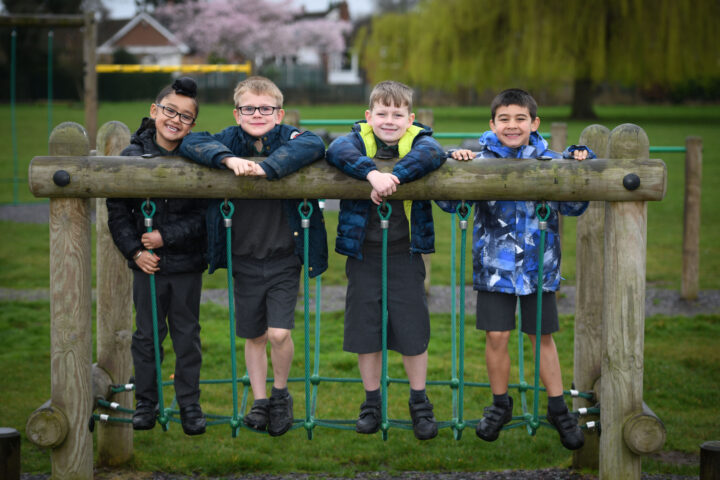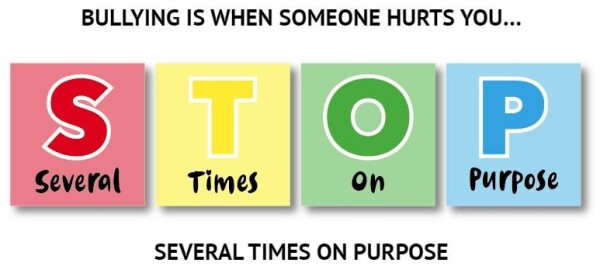Behaviour and Bullying

Please find below a copy of our behaviour rationale which guides our practice in school in supporting our children to regulate their big feelings and emotions and manage their behaviours.
Vision and Intent
At Hill West, we have the highest expectations for children’s behaviour. This is because their early pre natal and post natal experiences have prepared them well to succeed in school. For those children whose early life experiences, or indeed diagnosis of additional needs, have not equipped them to manage their strong sensations or emotions, it is incumbent upon us to support them systematically through excellent relationships to learn strategies to reduce their anxieties and manage their feelings and emotions. Over time, it is our intention to equip all children with the skills they will need for success in later life. We do this through:
- High expectations for all
- Kindness, compassion, and connection
- Identification of a key adult
- Talking with parents to support early identification of developmental needs
- Targeted social and emotional developmental intervention strategies
- Embodying playfulness, acceptance, curiosity and empathy – PACE in our everyday interactions
- Clearly articulated, appropriate and proportionate responses
Children and adults who are able to regulate themselves physiologically have what is called a large ‘window of tolerance’. This means they are able to tolerate both high and low levels of arousal without dysregulating (tripping into a survival ‘flight’, ‘fight’ or ‘freeze’ response). Our core purpose is to support all children to increase their window of
tolerance and thus their capacity to regulate themselves physiologically. This takes time and many repetitions.
Tools for Success: Responsibility
At Hill West, we know that children relish the opportunity to be trusted and hold roles of responsibility. An individual with a highly developed sense of personal responsibility is more likely to succeed in school, in the workplace, and in society at large. Therefore we assign a number of roles / responsibilities to our children over time. Star Students are appointed in Year 2 and Senior Students are appointed in Year 6. House Captains are assigned from Year 6 and ACE Champions are appointed from Year 2 through to Year 6; we have a Rights Respecting School Committee of pupils , an Equality, Diversity and Inclusion Committee and a Sustainability Committee, all elected from classes across school.
Behaviour as a way of communicating
At Hill West, we know and understand that all behaviours are a form of communication and usually signal that a child has become dysregulated or has an unmet need. We are wholly committed to teaching appropriate behaviours in the same way as we approach other curriculum areas, for example Reading. We understand that this teaching needs to be progressive and accumulative, and revisited many times. This is especially true when a child’s early experiences may not have equipped them with a stress-regulation system that enables them to settle, to feel safe, to concentrate, to be curious or to be willing to work alongside their peers in collaborative ways.
500 Repetitions
Our capacity to learn new habits and skills is possible because of the neural plasticity of the brain. Children who struggle to manage their behaviours need specific and repeated relational experiences which lead to the building of new neuronal pathways, which takes time, effort and repetition. Our staff know and appreciate that it takes about 500 or more repetitions to learn something new.
Building Supportive Reciprocal Relationships
At Hill West, we know that there are important ways to be in a relationship with a child that contribute positively to the development of a significant relationship, and to the development for the child of a healthy sense of self. These are known as Vital Relational Functions (VRFs) and are comprised of: Attunement, Validation, Containment, Soothing/Regulating. In addition, all staff understand the principles of PACE; Playfulness, Acceptance, Curiosity and Empathy (Dan Hughes). PACE is a way of thinking, feeling, communicating and behaving that aims to make the child feel safe. PACE is an approach of four personal qualities which allow adults to support a child to develop their own self-awareness, emotional intelligence and resilience. Over time and with practise, children can gain strong tools to better understand and regulate their emotions.
Bullying

All children have the right to learn and work in an environment where they feel safe and which is free from harassment and any bullying. Bullying is action taken by one or more children with the deliberate intention of hurting another child, either physically or emotionally. It is usually unprovoked, persistent and can continue for a long period of time.
Bullying behaviour can include:
- Physical aggression such as hitting, kicking, taking or damaging possessions
- Verbal aggression such as name calling, threatening comments, insults, racist remarks, homophobic remarks, teasing, sending nasty notes or making nuisance calls.
- Indirect social exclusion such as deliberately leaving someone out, ignoring someone, spreading rumours about someone or their family.
- Cyber bullying such as the use of ICT, mobile phones and the internet to deliberately upset someone else.
Bullying can be difficult to identify because it is often subtle, covert and rarely witnessed by adults. There are many possible warnings signs of bullying, both for individual pupils and whole school.
The role of the Teacher
As a school there are five key things we remember when responding to a bullying situation
- We never ignore suspected bullying
- We do not make assumptions
- We listen carefully to all accounts
- We adopt a problem-solving approach
- We follow-up shortly after intervention (one week) and some time later (six weeks) to check the bullying has not resumed.
Teachers in our school take all forms of bullying seriously, and intervene to prevent incidents from taking place. If a teacher witnesses an act of bullying, they do all they can to support the child who is being bullied, including consulting the Head Teacher / Senior Leads. If a child is being bullied over a period of time, the Head Teacher informs and meets with the child’s parents. The Senior Leaders and or Head Teacher will also inform and meet with the parents of the child or children who have initiated the bullying.
